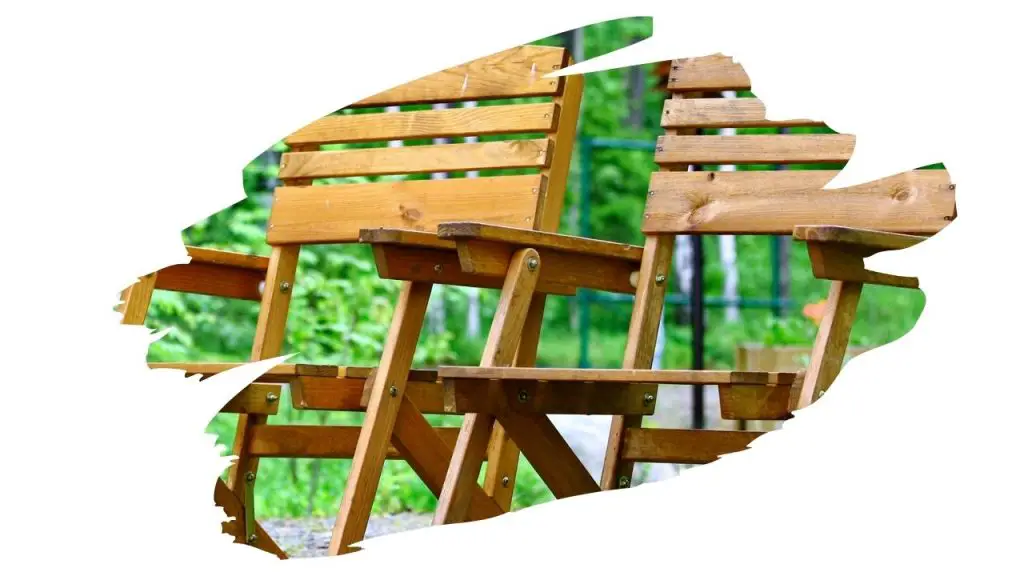Sealing wood is pretty much the final step in completing a project. It is one of the best ways to preserve lumber – as well as shield it from moisture, humidity, and bugs.
And what about sealing outdoor items such as patio furniture, decks, and dog houses? With pieces such as these you need a sealant that can offer more than just water-resistance. Instead, what you need is a sealer that can take on the weather – all year round.
Now, Thompson’s Water Seal often gets suggested as a first choice product for sealing decking.
And that comes as no real surprise. Especially when Thompson’s Water Seal Penetrating Decking Oil can really protect wood from the inside out. And it does this by soaking into wood grain just like a natural oil finish.
But there is a good reason why natural oils – even slow drying ones like linseed oil – are such popular finishes. They make wood grain look good, and they do a brilliant job at maintaining the timbers luster.
Still, you might want to hold off on using an oil finish, such as Boiled Linseed Oil, on pressure-treated wood decking.
Why? Well, because while this type of finish may look great on wood, it needs a fair amount of upkeep.
So, don’t be surprised if you find yourself having to refinish that deck furniture piece at least once a year.
A key advantage to using Thompson’s Water Seal vs Boiled Linseed Oil is upkeep. If you use boiled linseed oil on decking, you will need to reapply it at least once a year. Thompson’s Water Seal, however, needs a top up every 1 to 3 years. Thompson’s Water Seal can also prevent UV damage, while boiled linseed oil does not have any UV protection.
But, does Thompson’s Water Seal do a good enough job at retaining the natural beauty of wood? Well, keep reading to find out…

This post may contain affiliate links to products that we receive a commission for (at no additional cost to you). Learn more here.
Is Boiled Linseed Oil A Good Wood Preservative?
Boiled linseed oil does a great job at rejuvenating antique wood – making it ideal for refinishing old furniture.
It can be used on both softwoods and hardwoods, (besides oak), and it dries and cures relatively quickly compared to raw linseed oil.
Related Post: Can You Really Varnish Over Linseed Oil? (Best Practice Revealed)
What Is The Difference Between Boiled Linseed Oil And Raw Linseed Oil?
A key difference between boiled linseed oil and raw linseed oil is drying time.
Raw linseed oil pretty much dries at a snails pace, taking anywhere from 2 to 10 weeks to dry.
Boiled linseed oil, on the other hand, drys at lightning speeds (in comparison). This oil finish takes anywhere from 24 hours to 72 hours to dry. And it is all thanks to boiled linseed oils superheated treatment – involving oxidation and metallic drying agents.
Is Boiled Linseed Oil Good For Decks And Garden Furniture? A few coats of boiled linseed oil can protect and preserve wood decks and other exterior wood.
Related Post: Can You Easily Mix Stain With Thompson’s Water Seal (For Decking)?
So, Is Thompson’s Water Seal Any Good On Outdoor Wood?
Yes, although you will want to get the right water seal product for the job.
There are a lot of different water seal products available. And most of them are too viscous and thick to properly soak into wood pores.
Now, in the past, the way around this issue would be to thin out Water Seal. You’d do this with a home-brewed blend of 3 parts Linseed Oil, 2 parts Thompson’s Water Seal and 1 part Paint Thinner.
By mixing these 3 ingredients, you can thin out Water Seal enough for it to sink into timber.
But, nowadays, you can simply use Thompson’s teak oil. This product is otherwise known as ‘Thompson’s Waterseal Penetrating Oil’.
When you apply this premium oil blend it penetrates wood grain like any other natural oil finish.
That way, it can protect wood both inside and out. And thanks to its natural color, (and minimal streaking), it still lets wood grain show through and glow.
You can check out the latest prices for Thompson’s Waterseal Penetrating Oil over at Amazon.com
How Often Should You Apply Thompson’s Water Seal?
No matter what Water Seal product you opt for, Thompson’s recommends that you reapply its sealer once every 1 to 3 years. The exact timing will depend on various factors such as humidity, local weather, how many coats you used initially, etc.
And when it comes to boiled linseed oil, if you want that wood to look great all year round, then you are going to need to redo that finishing coat annually. Either way, you’ll know a surface needs resealing when it starts to absorb water again.
When Should I Reapply? (Quick & Easy Test)
- Fill a small spray bottle with water.
- Select 3 or 4 different sections of the wood surface to test out.
- Spray a sprinkle of water onto the first test section.
- Watch the color of the wood. If it darkens within 3-5 seconds, then it may need to be resealed.
- Repeat the test on the other sections of the wood. If all the sections darken within 3-5 seconds, then it’s high time to reapply.
Can You Use Thompson’s Water Seal On Pressure Treated Wood? Yes, you can use Thompson’s Water Seal products on pressure treated wood.
Final Thoughts
So, there you have it, Thompson’s Water Seal is a better choice for exterior wood.
Sure, boiled linseed oil finish is no waterproofing slouch, but it misses the mark when it comes to offering complete outdoor wood protection.
A coat of Thompson’s Water Seal won’t come at the expense of the rich appearance of grain. And it requires less long-term up keep too.
And, lest we forget, outdoor wood is going to be spending a lot of time under harsh sun rays. Which makes Thompson’s Water Seal’s UV protection, (of which boiled linseed oil has none), all the more important.
Related Post: Can You Mix Linseed Oil With Mineral Spirits? [Best Practice Revealed!]
References
Poth, Ulrich (2001). “Drying Oils and Related Products”. Ullmann’s Encyclopedia of Industrial Chemistry. doi:10.1002/14356007.a09_055.


